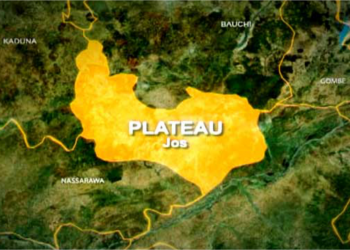The US military says it is cancelling $300m (£230m) in aid to Pakistan over what it calls Islamabad’s failure to take action against militant groups.
President Donald Trump has previously accused Pakistan of deceiving the US while receiving billions of dollars.
Pentagon spokesman. Lt-Col. Koné Faulkner said the US military would aim to spend the money on other “urgent priorities.”
The move, which needs to be approved by US Congress, is part of a broader suspension announced in January.
The US state department has criticised Pakistan, a key ally, for failing to deal with terrorist networks operating on its soil, including the Haqqani network and the Afghan Taliban.
“We continue to press Pakistan to indiscriminately target all terrorist groups,” Col Faulkner said in a statement on Saturday, adding that the $300m aid – which had earlier been suspended – should be used elsewhere due to “a lack of Pakistani decisive actions” in tackling the issue.
The announcement comes just days before US Secretary of State Mike Pompeo is due to visit Pakistan to meet the country’s new prime minister, Imran Khan.
In January, the US government announced it was cutting almost all security aid to the country.
The US and others have long complained that Pakistan provides a safe haven to militant networks, allowing them to carry out cross-border attacks in Afghanistan – something that Islamabad denies.
Separately on Friday, the US said it was ending all funding for the UN’s Palestinian refugee agency – the United Nations Relief and Works Agency (Unrwa) – which it described as “irredeemably flawed.”
The Haqqani network is a militant group that focuses most of its activities on neighbouring Afghanistan, which has complained for years that Pakistan allows it to operate unimpeded from its soil across the border.
The group is linked to the Afghan Taliban – a hardline Islamic movement that poses a major threat to the Afghan government.
Pakistani Taliban groups, while associated with the Afghan Taliban, focus on attacks within Pakistan.
Both the Haqqani Network and the Afghan Taliban have launched attacks in Afghanistan that have killed US forces, and US officials have long argued that Pakistan, and specifically its ISI intelligence service, provides safe havens to them.
Pakistan has long been accused of using the Afghan Taliban to further its foreign policy interests in the country.
The ISI first became involved in funding and training militants in Afghanistan after the Soviet invasion in 1979.
Although since 2001 Pakistan has allowed its territory to be used to supply international troops during the war in Afghanistan, and co-operated with the West in fighting some terrorists groups like al-Qaeda, analysts say it has continued to give shelter and support to Afghan insurgents.
Its aim has been to limit the influence in Afghanistan of its chief regional rival, India.
Syria blasts at Mezzeh military airport ‘not Israeli strikes’
Syria has denied reports that a series of blasts at a military airport near Damascus on Sunday were from Israeli air strikes, state media say.
The loud blasts, reported at the Mezzeh airport, were caused by an explosion at a munitions dump, Sana news agency said, citing Syrian military sources.
The incident was the result of an electrical fault, the agency added.
Israel has launched air strikes against Syria in the past and was accused of targeting Mezzeh airport last year.
On Sunday, the head of UK-based monitoring group, the Syrian Observatory for Human Rights, Rami Abdel Rahman, told AFP news agency the Mezzeh military airport was struck by a “possible Israeli missile” fired across the occupied Golan Heights.
The airport houses Syrian Air Force intelligence, AFP reports.
But a Syrian military source later rejected the claim, stating that the base was not the target of “Israeli aggression,” according to state-run Sana.
Images posted on social media appeared to show several powerful blasts in the area.
In May, Israel said it had attacked Iranian military infrastructure in Syria following what it said was an Iranian rocket attack on Israeli-held territory.
The following month, Israel said it had shot down a Syrian warplane which entered its airspace – a rare incident between the two foes.
READ ALSO: McCain: Obama, Bush pay tribute
In January last year, Syrian state media quoted the army as saying that several rockets had landed at the Mezzeh airport compound, accusing Israel of bombarding the area.
Arkady Babchenko ‘murder’: Borys Herman jailed over plot

A man has been sentenced to four-and-a-half years in prison in Ukraine for plotting to kill exiled Russian journalist, Arkady Babchenko, Ukraine’s state security agency says.
Borys Herman is said to have pleaded guilty and agreed to co-operate with the investigation.
He was accused of acting as the middleman between alleged contacts in Russia and a hired assassin in Kiev.
Mr. Babchenko escaped by faking his own death.
He was helped by the man hired to kill him and Ukraine’s security services.
To widespread astonishment, the 41 year old appeared the day after his murder was reported to admit it had all been staged.
Relations between Kiev and Moscow are tense with Russia having illegally annexed Crimea in 2014 and continuing to support armed rebel groups in Ukraine’s east.
The man hired to assassinate Mr. Babchenko says he played along to help authorities gather more information.
Oleksiy Tsymbaliuk, a former Ukrainian orthodox priest, told the BBC earlier this year that he had alerted security services as soon as Mr. Herman, a fellow Ukrainian, asked him to kill Mr. Babchenko.
Mr. Herman did not deny plotting with Mr. Tsymbaliuk, but initially said he was also working with Ukraine’s SBU security services and knew all along that the assassination would be faked.












